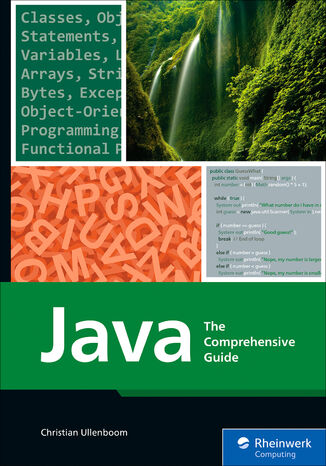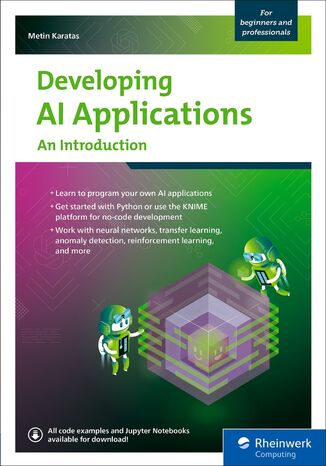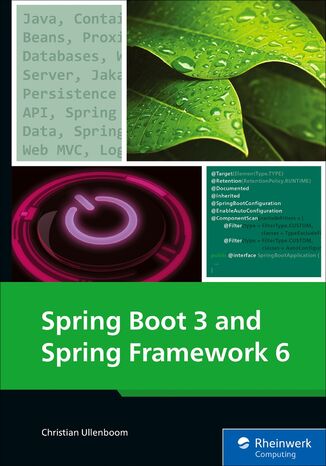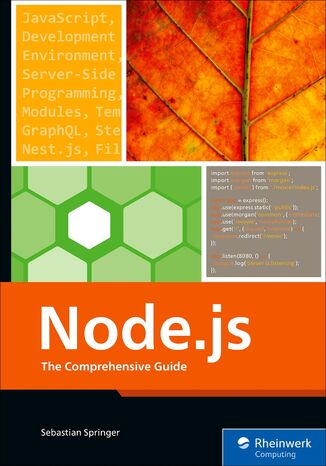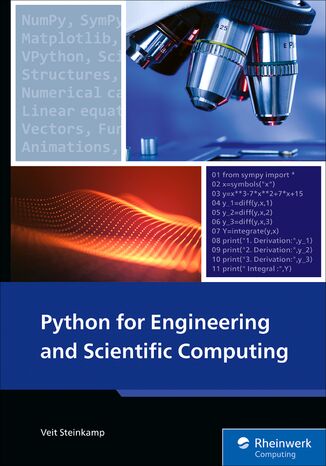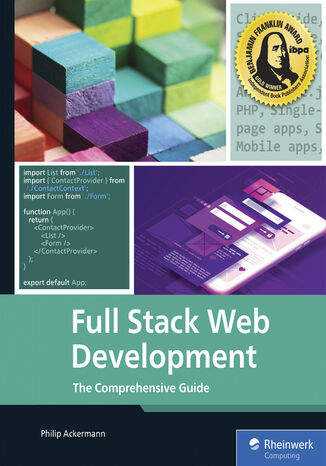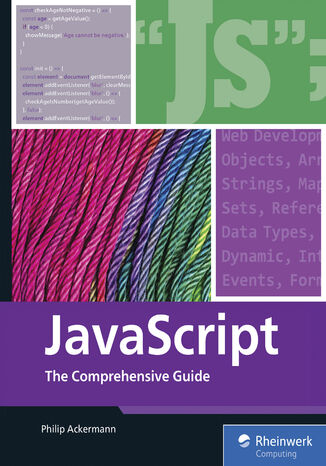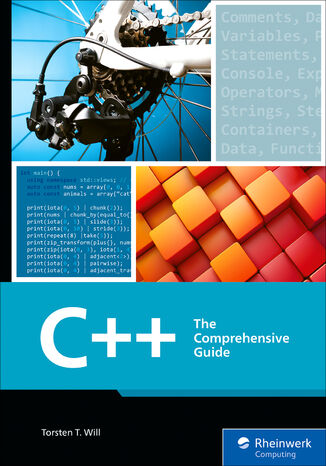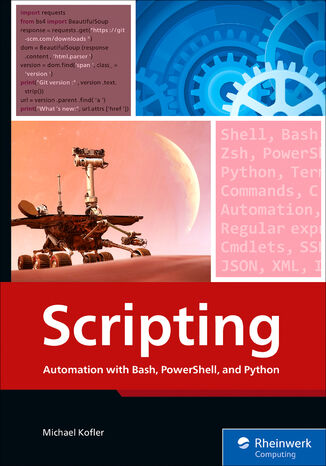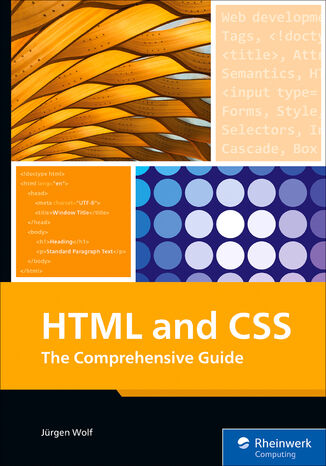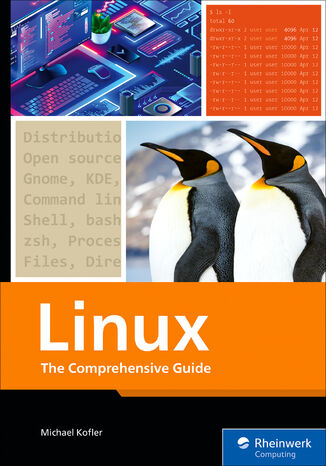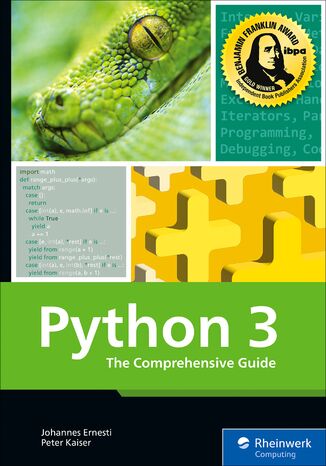Categories
-
- Bitcoin
- Businesswoman
- Coaching
- Controlling
- E-business
- Economy
- Finances
- Stocks and investments
- Personal competence
- Computer in the office
- Communication and negotiation
- Small company
- Marketing
- Motivation
- Multimedia trainings
- Real estate
- Persuasion and NLP
- Taxes
- Social policy
- Guides
- Presentations
- Leadership
- Public Relation
- Reports, analyses
- Secret
- Social Media
- Sales
- Start-up
- Your career
- Management
- Project management
- Human Resources
-
- Architektura i wnętrza
- Health and Safety
- Biznes i Ekonomia
- Home and garden
- E-business
- Ekonomia i finanse
- Esoterecism
- Finances
- Personal finance
- Business
- Photography
- Computer science
- HR & Payroll
- For women
- Computers, Excel
- Accounts
- Culture and literature
- Scientific and academic
- Environmental protection
- Opinion-forming
- Education
- Taxes
- Travelling
- Psychology
- Religion
- Agriculture
- Book and press market
- Transport and Spedition
- Healthand beauty
-
- Office applications
- Data bases
- Bioinformatics
- IT business
- CAD/CAM
- Digital Lifestyle
- DTP
- Electronics
- Digital photography
- Computer graphics
- Games
- Hacking
- Hardware
- IT w ekonomii
- Scientific software package
- School textbooks
- Computer basics
- Programming
- Mobile programming
- Internet servers
- Computer networks
- Start-up
- Operational systems
- Artificial intelligence
- Technology for children
- Webmastering
-
- Antology
- Ballade
- Biographies and autobiographies
- For adults
- Dramas
- Diaries, memoirs, letters
- Epic, epopee
- Essay
- Fantasy and science fiction
- Feuilletons
- Work of fiction
- Humour and satire
- Other
- Classical
- Crime fiction
- Non-fiction
- Fiction
- Mity i legendy
- Nobelists
- Novellas
- Moral
- Okultyzm i magia
- Short stories
- Memoirs
- Travelling
- Narrative poetry
- Poetry
- Politics
- Popular science
- Novel
- Historical novel
- Prose
- Adventure
- Journalism, publicism
- Reportage novels
- Romans i literatura obyczajowa
- Sensational
- Thriller, Horror
- Interviews and memoirs
-
- Archeology
- Bibliotekoznawstwo
- Cinema studies
- Philology
- Polish philology
- Philosophy
- Finanse i bankowość
- Geography
- Economy
- Trade. World economy
- History and archeology
- History of art and architecture
- Cultural studies
- Linguistics
- Literary studies
- Logistics
- Maths
- Medicine
- Humanities
- Pedagogy
- Educational aids
- Popular science
- Other
- Psychology
- Sociology
- Theatre studies
- Theology
- Economic theories and teachings
- Transport i spedycja
- Physical education
- Zarządzanie i marketing
-
- Health and Safety
- History
- Road Code. Driving license
- Law studies
- Healthcare
- General. Compendium of knowledge
- Academic textbooks
- Other
- Construction and local law
- Civil law
- Financial law
- Economic law
- Economic and trade law
- Criminal law
- Criminal law. Criminal offenses. Criminology
- International law
- International law
- Health care law
- Educational law
- Tax law
- Labor and social security law
- Public, constitutional and administrative law
- Family and Guardianship Code
- agricultural law
- Social law, labour law
- European Union law
- Industry
- Agricultural and environmental
- Dictionaries and encyclopedia
- Public procurement
- Management
-
- Africa
- Albums
- Southern America
- North and Central America
- Australia, New Zealand, Oceania
- Austria
- Asia
- Balkans
- Middle East
- Bulgary
- China
- Croatia
- The Czech Republic
- Denmark
- Egipt
- Estonia
- Europe
- France
- Mountains
- Greece
- Spain
- Holand
- Iceland
- Lithuania
- Latvia
- Mapy, Plany miast, Atlasy
- Mini travel guides
- Germany
- Norway
- Active travelling
- Poland
- Portugal
- Other
- Przewodniki po hotelach i restauracjach
- Russia
- Romania
- Slovakia
- Slovenia
- Switzerland
- Sweden
- World
- Turkey
- Ukraine
- Hungary
- Great Britain
- Italy
-
- Philosophy of life
- Kompetencje psychospołeczne
- Interpersonal communication
- Mindfulness
- General
- Persuasion and NLP
- Academic psychology
- Psychology of soul and mind
- Work psychology
- Relacje i związki
- Parenting and children psychology
- Problem solving
- Intellectual growth
- Secret
- Sexapeal
- Seduction
- Appearance and image
- Philosophy of life
-
- Bitcoin
- Businesswoman
- Coaching
- Controlling
- E-business
- Economy
- Finances
- Stocks and investments
- Personal competence
- Communication and negotiation
- Small company
- Marketing
- Motivation
- Real estate
- Persuasion and NLP
- Taxes
- Social policy
- Guides
- Presentations
- Leadership
- Public Relation
- Secret
- Social Media
- Sales
- Start-up
- Your career
- Management
- Project management
- Human Resources
-
- Antology
- Ballade
- Biographies and autobiographies
- For adults
- Dramas
- Diaries, memoirs, letters
- Epic, epopee
- Essay
- Fantasy and science fiction
- Feuilletons
- Work of fiction
- Humour and satire
- Other
- Classical
- Crime fiction
- Non-fiction
- Fiction
- Mity i legendy
- Nobelists
- Novellas
- Moral
- Okultyzm i magia
- Short stories
- Memoirs
- Travelling
- Poetry
- Politics
- Popular science
- Novel
- Historical novel
- Prose
- Adventure
- Journalism, publicism
- Reportage novels
- Romans i literatura obyczajowa
- Sensational
- Thriller, Horror
- Interviews and memoirs
-
- Philosophy of life
- Interpersonal communication
- Mindfulness
- General
- Persuasion and NLP
- Academic psychology
- Psychology of soul and mind
- Work psychology
- Relacje i związki
- Parenting and children psychology
- Problem solving
- Intellectual growth
- Secret
- Sexapeal
- Seduction
- Appearance and image
- Philosophy of life
Rheinwerk Publishing, Inc, Christian Ullenboom
This comprehensive guide introduces readers to Java programming from the ground up, beginning with the language’s history, installation, and core syntax. Early chapters cover imperative programming concepts, object-oriented principles, and essential data types like arrays and strings. As the journey progresses, readers explore custom classes, inheritance, interfaces, exceptions, and nested types, building a solid foundation in Java’s structure and design.Midway, the book dives into advanced topics such as generics, lambda expressions, functional programming, and concurrency. Readers gain practical knowledge of modern Java features including module systems, the extensive Java class library, and the nuances of thread management. The coverage also extends to data structures, algorithms, file I/O, and database connectivity with JDBC, empowering readers to handle real-world programming challenges with confidence.The final sections focus on testing with JUnit, software design patterns, and Java development tools, equipping readers with skills to write clean, maintainable, and efficient code. Throughout this journey, the book emphasizes practical examples and best practices, making it an indispensable resource for learners aiming to master Java from basics to advanced professional techniques.
Developing AI Applications. An Introduction
Rheinwerk Publishing, Inc, Metin Karatas
This book opens with a clear introduction to AI fundamentals, covering its history and key concepts while guiding readers through installing essential tools like KNIME and AutoKeras. It begins by building a strong foundation in artificial neural networks and decision trees, enabling readers to grasp core AI methods. The journey then advances to convolutional layers for image classification, transfer learning, and anomaly detection, offering practical, beginner-friendly examples.As the reader progresses, the book explores text classification, cluster analysis, and automated AI model creation with AutoKeras. Visual programming with KNIME is introduced to simplify complex AI workflows. Further chapters cover reinforcement learning and genetic algorithms, expanding the reader’s skill set and preparing them for more advanced challenges. Hands-on exercises throughout reinforce concepts and practical application.In its final chapters, the guide dives into cutting-edge AI tools by demonstrating how to leverage ChatGPT and DALL-E APIs, including prompt engineering and API programming. It concludes with an outlook on the future of AI, equipping readers with the knowledge and confidence to build and deploy their own AI-powered applications from start to finish.
Spring Boot 3 and Spring Framework 6. The Comprehensive Guide to Modern Java Development
Rheinwerk Publishing, Inc, Christian Ullenboom
This book takes readers on a comprehensive journey through Spring Boot 3 and Spring Framework 6, starting with the essentials of dependency injection and Spring-managed containers. It then explores core modules and proxies to establish a strong foundation for Java application development. Early chapters guide readers through configuring Spring Boot projects and managing dependencies efficiently.The middle sections focus heavily on database integration, including relational databases using Spring JDBC, Jakarta Persistence, and advanced Spring Data JPA techniques. Readers will also learn to work with NoSQL databases like MongoDB and Elasticsearch, enhancing their ability to handle various data storage solutions. The book covers the development of web applications using Spring MVC, RESTful API design, and securing web endpoints.The final chapters emphasize application monitoring with Spring Boot Actuator, logging strategies, and practical deployment options including containerization. Alongside the core content, a dedicated migration chapter assists developers transitioning from Spring Boot 2 to version 3, ensuring they stay current with evolving best practices. This structured approach prepares readers to confidently build, monitor, and deploy modern, production-ready Java applications.
Node.js. The Comprehensive Guide
Rheinwerk Publishing, Inc, Sebastian Springer
This comprehensive guide begins by introducing the core principles of Node.js, covering installation, environment setup, and modular programming. Readers then build foundational skills by creating their first applications and exploring essential web technologies like HTTP and popular frameworks such as Express and Nest. The journey continues into advanced topics like template engines, database integration, and authentication techniques, equipping readers to build full-featured web applications.As readers progress, the book delves into building RESTful and GraphQL APIs, real-time applications with WebSockets, and writing type-safe Node.js code using TypeScript. Later chapters explore command-line tools, asynchronous programming with Promises and RxJS, streams, and file handling. Comprehensive sections on package management, quality assurance, testing, and security provide practical insights to produce robust, maintainable software.The final chapters focus on deploying scalable applications, performance optimization, microservices architecture, and introduce the emerging Deno runtime. Throughout the book, detailed examples and step-by-step explanations guide readers from fundamental concepts to advanced techniques, making this an essential resource for developers seeking mastery of server-side JavaScript development with Node.js.
Git. Project Management for Developers and DevOps Teams
Rheinwerk Publishing, Inc, Bernd Öggl, Michael Kofler
This practical guide is designed to take you from Git beginner to advanced user. Starting with installation and configuration, it covers the essential Git commands you'll need to create and manage repositories, track changes, and work with branches and commits. These fundamental concepts set the stage for more complex workflows and efficient version control management.The book then explores advanced features, such as using platforms like GitHub and GitLab for remote repositories. You'll learn how to collaborate with others through pull requests, set up continuous integration pipelines, and implement automation using hooks. The guide also includes advanced techniques like rebasing and working with submodules, helping you streamline your workflow and manage larger projects effectively.The final sections focus on troubleshooting common Git errors, from merge conflicts to authentication issues. Practical solutions and best practices ensure you can resolve problems quickly and efficiently. The book wraps up with a comprehensive Git command reference, making it a go-to resource for both new users and experienced developers. Whether you're working solo or in teams, this book will help you master version control with confidence.
Rheinwerk Publishing, Inc, Veit Steinkamp
This book provides a thorough introduction to Python programming designed for engineers and scientists. It begins with foundational topics like development environments and program structures, then introduces key Python libraries such as NumPy, SymPy, SciPy, Matplotlib, and VPython. Clear explanations and practical exercises help readers write efficient, well-structured code while progressing through increasingly complex projects.The content covers core programming paradigms including functions, branching, and object-oriented design, followed by numerical analysis with NumPy and symbolic math with SymPy. Detailed chapters on data visualization with Matplotlib and 3D animations with VPython enhance comprehension. Additional focus on statistical computations, Boolean algebra, and interactive GUI programming with Tkinter prepares readers for real-world applications. Each chapter ends with project tasks reinforcing hands-on learning.Throughout the book, readers build a strong skill set combining programming expertise and scientific problem-solving. By the end, they will confidently use Python’s libraries to solve diverse engineering and scientific challenges. This practical, project-based approach ensures knowledge is both solid and immediately useful in research and professional work.
Full Stack Web Development. Mastering Web Development from Client to Server-Side Technologies
Rheinwerk Publishing, Inc, Philip Ackermann
This book offers a comprehensive guide to full stack web development, covering everything from core web technologies to advanced topics. The early chapters introduce foundational concepts like client-server relationships, HTML, CSS, and JavaScript. Readers learn how to build static and dynamic web pages, gaining a solid grounding in front-end development.As the book progresses, it delves into more advanced areas such as structuring applications, databases, and server-side programming using frameworks like Node.js and PHP. Practical examples, such as building web servers and handling data, help readers apply their skills in real-world scenarios, bridging the gap between theory and practice.The later chapters address crucial topics like web security, performance optimization, and project management. Readers are introduced to modern practices like Docker, microservices, and Agile project management, equipping them to handle scalable, secure applications. By the end, readers will have a holistic understanding of how to build, secure, and deploy full stack applications, making this book ideal for both beginners and experienced developers seeking to refine their skills.
JavaScript. Mastering JavaScript from Basics to Advanced Topics
Rheinwerk Publishing, Inc, Philip Ackermann
This book provides a comprehensive introduction to JavaScript and web development, starting with the basics of programming and progressing through advanced topics. The initial chapters introduce JavaScript, exploring its history, its relationship with HTML and CSS, and how to integrate it into web pages. Readers will learn to create and manipulate variables, data types, and operators while controlling the flow of programs using loops and functions.As the book advances, it covers more complex concepts like working with objects, arrays, and strings, and introduces modern web APIs, such as Ajax, Fetch API, and browser storage methods. Additional chapters focus on object-oriented and functional programming, emphasizing JavaScript’s versatile capabilities.Later sections explore asynchronous programming, server-based applications with Node.js, and creating mobile and desktop applications using frameworks like React Native and Electron. There is also a focus on controlling microcontrollers using JavaScript, automating tasks with Grunt and Gulp, and managing source code through Git, providing a full-stack development approach with JavaScript at its core.
Rheinwerk Publishing, Inc, Torsten T. Will
This book begins by grounding readers in the essentials of modern C++23, covering syntax, compiling, and core programming concepts. Early chapters introduce building blocks like data types, functions, and statements, ensuring a solid foundation. Readers also learn coding best practices focused on readability and modularization.As the journey progresses, the focus shifts to object-oriented programming, exploring classes, inheritance, namespaces, and lifecycle management. The text includes advanced topics such as templates, macros, and the integration of C libraries. Readers develop skills in designing secure, maintainable, and extensible code while mastering error handling and testing.The final sections dive into concurrency, standard library features like containers and algorithms, and advanced stream handling. Practical guidance on thread management, synchronization, and modern concurrency tools prepares readers for real-world applications. Concluding chapters present C++ guidelines, emphasizing sustainable and quality code development, completing a comprehensive path from fundamentals to expert-level mastery.
Scripting. Automation with Bash, PowerShell, and Python
Rheinwerk Publishing, Inc, Michael Kofler
This comprehensive scripting guide empowers system administrators, developers, and power users to automate repetitive IT tasks across platforms using three major scripting languages: Bash, PowerShell, and Python. The book opens with foundational scripting concepts and showcases what you can accomplish with just ten lines of code. It continues with in-depth chapters on each language, emphasizing syntax, control structures, error handling, and modularity.Readers will explore practical techniques for managing files, parsing text, utilizing regular expressions, and working with JSON, XML, and INI formats. The book dives into job automation with cron and Task Scheduler, secure communication via SSH, and scripting in professional environments with tools like Visual Studio Code and Git.The final section applies scripting to real-world cases, including system backups, image processing, web scraping, API consumption, database interactions, cloud integration, and virtual machine automation. With this book, readers build a strong scripting toolkit to efficiently manage modern IT workflows.
HTML and CSS. The Comprehensive Guide
Rheinwerk Publishing, Inc, Jürgen Wolf
This comprehensive guide immerses readers in the core technologies of front-end web development, starting with HTML fundamentals such as document structure, semantic elements, and form creation. Readers then explore CSS styling principles, including selectors, the box model, inheritance, and responsive design techniques that ensure websites look great across all devices. The book also introduces CSS preprocessors like Sass, offering advanced tools to write scalable, maintainable stylesheets.Beyond styling, the guide presents an accessible introduction to JavaScript, equipping readers with the skills to add interactivity and dynamic behavior to their web pages. It covers essential JavaScript concepts such as variables, functions, events, and DOM manipulation, allowing for richer user experiences.Throughout, practical code examples and clear explanations enable readers to confidently build and style modern websites, while also teaching testing strategies and organization for consistent cross-browser performance. This structured learning path prepares developers to tackle real-world web projects with a solid foundation in front-end technologies.
Hacking and Security. The Comprehensive Guide to Penetration Testing and Cybersecurity
Rheinwerk Publishing, Inc, Michael Kofler, Klaus Gebeshuber, ...
This book provides a comprehensive guide to cybersecurity, covering hacking techniques, tools, and defenses. It begins by introducing key concepts, distinguishing penetration testing from hacking, and explaining hacking tools and procedures. Early chapters focus on security fundamentals, such as attack vectors, intrusion detection, and forensic methods to secure IT systems.As the book progresses, readers explore topics like exploits, authentication, and the challenges of IPv6 security. It also examines the legal aspects of hacking, detailing laws on unauthorized access and negligent IT security. Readers are guided through installing and using Kali Linux for penetration testing, with practical examples of network scanning and exploiting vulnerabilities.Later sections cover a range of essential hacking tools, including Metasploit, OpenVAS, and Wireshark, with step-by-step instructions. The book also explores offline hacking methods, such as bypassing protections and resetting passwords, along with IT forensics techniques for analyzing digital traces and live data. Practical application is emphasized throughout, equipping readers with the skills needed to address real-world cybersecurity threats.
Linux. The Comprehensive Guide
Rheinwerk Publishing, Inc, Michael Kofler
This guide begins with Linux fundamentals, including an overview of its history, distributions, and installation methods. Readers learn to install Linux on various hardware configurations while understanding open-source licensing and partitioning. The book then introduces desktop environments like GNOME and KDE, showing how to navigate and customize them for productivity.Building on this foundation, readers develop command-line proficiency, mastering terminal usage and shell scripting with Bash and Zsh. The book covers file and process management, network tools, and package management, giving readers confidence to optimize and secure their systems. Later chapters dive into system administration topics such as kernel compilation, bootloader configuration, and virtualization with VirtualBox and QEMU.Finally, the book focuses on server installation, secure shell configuration, web and mail server setup, and file sharing via Samba. It also addresses backup strategies, firewall setup, and security enhancements with SELinux and AppArmor, preparing readers to maintain reliable, secure Linux environments in professional or personal contexts.
Python 3. The Comprehensive Guide
Rheinwerk Publishing, Inc, Johannes Ernesti, Peter Kaiser
This in-depth guide to Python 3 begins by helping readers install the language and understand its core syntax through interactive exploration. Early chapters cover variables, control structures, functions, and data types like lists, tuples, dictionaries, and sets. Readers then move into file handling, error management, and object-oriented programming, building a solid foundation for real-world development.As the journey continues, the book introduces advanced concepts including decorators, generators, type hints, structural pattern matching, and context managers. It thoroughly explores the Python standard library, with practical applications in math, file systems, logging, regular expressions, parallel processing, and debugging. Readers also learn how to manage packages, virtual environments, and distributions.Later chapters shift to applied development—building GUIs with tkinter and PySide6, creating web applications with Django, and working with scientific tools like NumPy, pandas, and SciPy. The book concludes with insights on using alternative interpreters, localization, and migrating from Python 2 to 3. This resource grows with the reader, from basics to expert-level Python programming.

